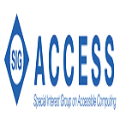Adversarial attacks for machine learning models have become a highly studied topic both in academia and industry. These attacks, along with traditional security threats, can compromise confidentiality, integrity, and availability of organization's assets that are dependent on the usage of machine learning models. While it is not easy to predict the types of new attacks that might be developed over time, it is possible to evaluate the risks connected to using machine learning models and design measures that help in minimizing these risks. In this paper, we outline a novel framework to guide the risk management process for organizations reliant on machine learning models. First, we define sets of evaluation factors (EFs) in the data domain, model domain, and security controls domain. We develop a method that takes the asset and task importance, sets the weights of EFs' contribution to confidentiality, integrity, and availability, and based on implementation scores of EFs, it determines the overall security state in the organization. Based on this information, it is possible to identify weak links in the implemented security measures and find out which measures might be missing completely. We believe our framework can help in addressing the security issues related to usage of machine learning models in organizations and guide them in focusing on the adequate security measures to protect their assets.
翻译:在学术界和工业界,对机器学习模式的反向攻击已成为一个研究周密的主题,这些攻击加上传统的安全威胁,可能损害取决于机器学习模式的使用的组织资产的保密性、完整性和可用性。虽然很难预测可能随着时间推移而发展的新攻击类型,但有可能评估与使用机器学习模式和设计有助于最大限度地减少这些风险的措施有关的风险。在本文件中,我们概述了指导依靠机器学习模式的组织风险管理进程的新框架。首先,我们界定了数据领域、模型领域和安全控制领域的整套评价因素(EFs)。我们开发了一种方法,以资产和任务的重要性为取材,确定EFs对保密、完整性和可用性的贡献的分数,并根据EF的分数确定组织的总体安全情况。根据这一信息,我们有可能查明所执行的安全措施中的薄弱环节,并找出可能完全丢失哪些措施。我们认为,我们的框架可以帮助解决与各组织使用机器学习模式有关的安全问题,并指导这些组织将其重点放在保护其资产的安保措施上。





